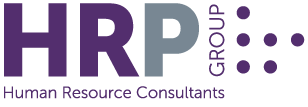
HR Audits
Policies and procedures within the workplace are of utmost importance; it doesn’t matter how big a company is as long as there are employees within the company there has to be a human resource compliance audit – which outlines HR responsibilities.
HR managers are responsible for addressing everything that governs an employee at work, so matters regarding things such as wages, company policies and benefit packages, for instance, all equate to human resource issues and in order to have a well-structured, organised and fair organisation for workers, these matters have to be well maintained, reviewed often and accurately applied by management and even employees.
Undue care and attention to matters such as Human resource management is the pitfall for any business success. If not handled properly, it can break a company. To avoid mishaps of this magnitude, as any business school would agree, the subject of human resources needs to be prioritised.
How does a company know if it’s handling of HR resources is appropriately managed?
The best way to deal with matters such as human resource policies is through an HR Audit. The HR Audit can assess as well as advise on best practices to follow, they will review your policies and procedures, find any problem areas, make necessary changes, address matters as and when things occur and help to find better ways to improve policy thus making it more effective and efficient for both business and workers.
HR Audits aim is to improve business for the greater good; the correct HR policies can protect a company from lawsuits as well as clearly outline a structured expectation from employees so that potential is fulfilled, they can also help a workplace to seek accurate employees to fit job roles, addressing all matters which works towards a more successful organisation.
Why the need for HR Audits?
HR Audits don’t have to be used to take care of your business Human Resource policies, but for the easiest way to handle these very important matters, it’s advised that they are. Today’s employment laws, rules and regulations within workplaces is a complex matter, we constantly have to keep up with ever-evolving new regulations and legislation, and if we fail to keep up or make the necessary changes to our policies, we are taking a huge risk, which could be consequential to business.
Employment Law changes often and workplaces have a responsibility to adapt to new laws and rules, as and when they come into practice, so it requires a constant eagle eye on matters in order to address and apply these changes, the HR Audit takes care of all of these matters ensuring a workforce fully up to date with any new legislation.
Other Key areas the HR Audit will address are as follows:
- Ensuring best practice and keeping up to date with legal compliance.
- Outline business goals and expectations with efficient and effective policies to help work towards a more successful business and help enable targets being met.
- Constantly risk assessing new employment laws and applying necessary changes to avoid any pitfalls.
- Updating from industry norms to lucratively be up to date with changing times, helping to redefine with regards to business matters as well as engaging and enhancing communications with employees.
HR Audits and the two main areas of policy
HR Audits are generally focused on addressing two key areas. Although both can be conducted concurrently, it’s important to understand that each key area focuses on a very different aspect.
Risk Mitigation
The HR Audit that handles Risk Mitigation will address all things with regards to legal matters, so it focuses mainly on things such as lawsuits and how to provide best practices to protect a business from potential employment-related lawsuits and any legal situations it may pose a risk.
Value Creation
The HR Audit that manages the Value creation side of human resource policy addresses all things related to employee values and maximising potential, it helps to improve business by attracting better workers for job roles and policy and processes will be improved to support best practice.
The expectations of the HR Audit
An Effective HR Audit will address all matters that maximises business potential, and company success and progression are the prime focus and goal of the Audit. Any changes or introductions applied to the policy are done with business potential at the forefront at all times.
The expectations for the Audit would be to include all matters associated for best practice for business for the duration of its lifecycle. Matters that involve everything from advertising and recruiting to performance management, pay strategies, and even exit procedures must be included within the Audit.
Can I conduct HR Audits for specific areas only?
Yes, Of course, every business has a budget and time frame, and the Hr Audit can focus on certain areas of your Human Resource policy to suit your needs. If only certain areas of concern need reviewing, that can be dealt with accordingly, or if the budget is tight, they can advise on the most important areas to review.
Some of the key areas are as follows, all can be reviewed, or businesses can conduct the HR Audit to focus on perhaps one or two in relation to concern or budget.
Compliance policy
Focuses on how a business is complying will all aspects of employment law and regulations. It’s a very important part of the HR Audit as it relates to all legal matters to ensure non-violations of law and to protect a company from any potential lawsuits. (Part of the Risk Mitigation Audit)
Best Practice policies
It ensures a company is meeting ‘expected standards’ in comparison to other business policies. It’s great for keeping up to date with changing times in order to further improve business potential with regards to payrolls, job descriptions, employee expectations, etc.
Performance Policy
HR Audit will review personnel files in order to try and identify any ways to make necessary improvements. The main focus will be aimed at how management communicates with staff and will try to find ways to improve matters with relationships-if applicable- to establish more effective management skills. The goal is to augment the desires of the workforce in order for them to fulfil their expectations.
Competition
HR Audit will assess policies to see if it can compete with others in order to be able to attract employees to your company. Things such as salaries and benefits packages, as well as opportunities and flexible work hours, will be addressed.
Specific Functions
HR Audits will primarily focus on one key area, more of a mini version. In contrast, an area such as payroll, record-keeping, or employee review policy will be the main focus of attention.
Audit proficiency and capability
HR Audit will work with the company to identify and rectify areas of concern; they will help to form a strategic plan that is both manageable financially wise and efficient and effective for all. Employees and business potential are always at the forefront of the HR Audits approach, and continued support and advice are always on hand. With constant reviewing, the HR Audit will renew certain aspects of the policy to keep ahead with changing times so things such as personnel files, contracts, or handbooks can be updated accordingly.
Using HR Audits to evaluate and review will enable an expert approach to examine business activities and how to benchmark best practices, and they are extremely helpful when it comes to preparing a business for NERA inspections.
You can use the HR Audit to review and support Audits that require a whole overall or perhaps only certain key areas such as:
- Contracts and terms of employment for full and part-time workers.
- Administration review with regards to holiday allowance, hours of works, breaks, retirement, redundancy, and new starters.
- Work Permit, recruitment, targets, standards, termination and disciplinary procedures, grievances, communications, training, and performance management.
